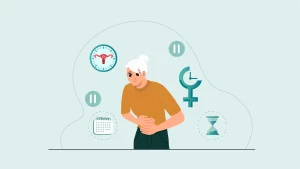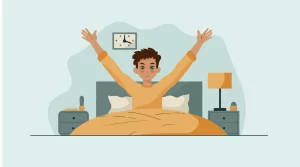Have you ever noticed that your eyes become drier after taking certain medications? Dry eye—an increasingly common problem—may be exacerbated by the side effects of certain medications.
Dry eye is a condition that affects millions of people worldwide. Its symptoms, such as irritated, red eyes and a feeling of dryness can be particularly uncomfortable. For many, taking medication is a common way to treat other health problems, but it seems that these treatments can sometimes have adverse effects on the eyes.
In fact, some commonly prescribed medications can make dry eye worse. They may have side effects that include reduced tear production or a deterioration in tear quality, contributing to dry eye.
Which medications can cause dry eye?
- Antihistamines: these are commonly used to treat allergies. However, many antihistamines can reduce tear production in the eyes, which can lead to dry eye.
- Antidepressants: some antidepressants can cause dry eye by reducing tear secretion, which means the surface of the eyes will not be wet enough.
- Medications for high blood pressure: particularly beta-blockers, which are often prescribed for this condition. These medications can cause symptoms of dry eye because they can reduce blood flow to the eyes. This means that the lacrimal glands may receive insufficient oxygen and therefore produce fewer tears.
- Antihypertensives: these are medications prescribed to treat high blood pressure by lowering blood pressure. Diuretics are a commonly used class of antihypertensives. However, diuretics can have an adverse effect on the body’s overall fluid balance, which can affect the eyes by causing dehydration. This can affect the whole body, including the eyes, by reducing the amount of fluid available for tear production. A decrease in the amount of tears or an imbalance in the composition of the tears may cause dry eye.
- Acne medications: although this side effect is not as common as in other classes of medication, some acne medications can cause dry eye. For example, Roaccutane causes a drying effect that spreads to the tear ducts and meibomian glands. Disruption of these glands can lead to reduced tear quality, which can contribute to increased dry eye.
A few tips for limiting dry eye
- Use artificial tears: in the form of eye drops, to limit symptoms and keep the eyes hydrated. It is essential to use preservative-free eye drops, because preservatives are harmful to the eyes.
- Stay hydrated: drink enough water to keep your body well hydrated, as dehydration can worsen dry eye. The recommended amount is 1.5 to 2 litres per day.
- Use an air humidifier: if you live in a dry environment, a humidifier in your home or office can help keep the air moist and reduce dry eye.
- Eat a balanced diet: a diet rich in omega-3 fatty acids and vitamins A and C, plus antioxidants, can promote eye health. Consult your doctor or a nutritionist for specific dietary recommendations.
- Avoid contact lenses: if you wear contact lenses, consider removing them temporarily when your eyes are particularly dry. Contact lenses can worsen dry eye. It is therefore best to use daily lenses and to limit how often you wear them, opting for glasses instead.
- Maintain good eyelid hygiene: this involves several steps, the first of which is heating your eyelids using a warming mask or hot compresses, then massaging them and finally cleaning and rinsing the eyelids (click here to see our full tutorial). Cleaning is essential because it unblocks the meibomian glands, which thins the meibum. This process can improve the quality of your tears, and therefore improve your dry eye.
It is important to note that not all patients respond in the same way to medications, and dry eye may be more pronounced in some people than in others. In addition, some medications may cause short-term dry eye, while others may cause chronic dry eye.
If you suffer from dry eye and are taking medications that may contribute to this problem, it is essential to contact your healthcare professional.




